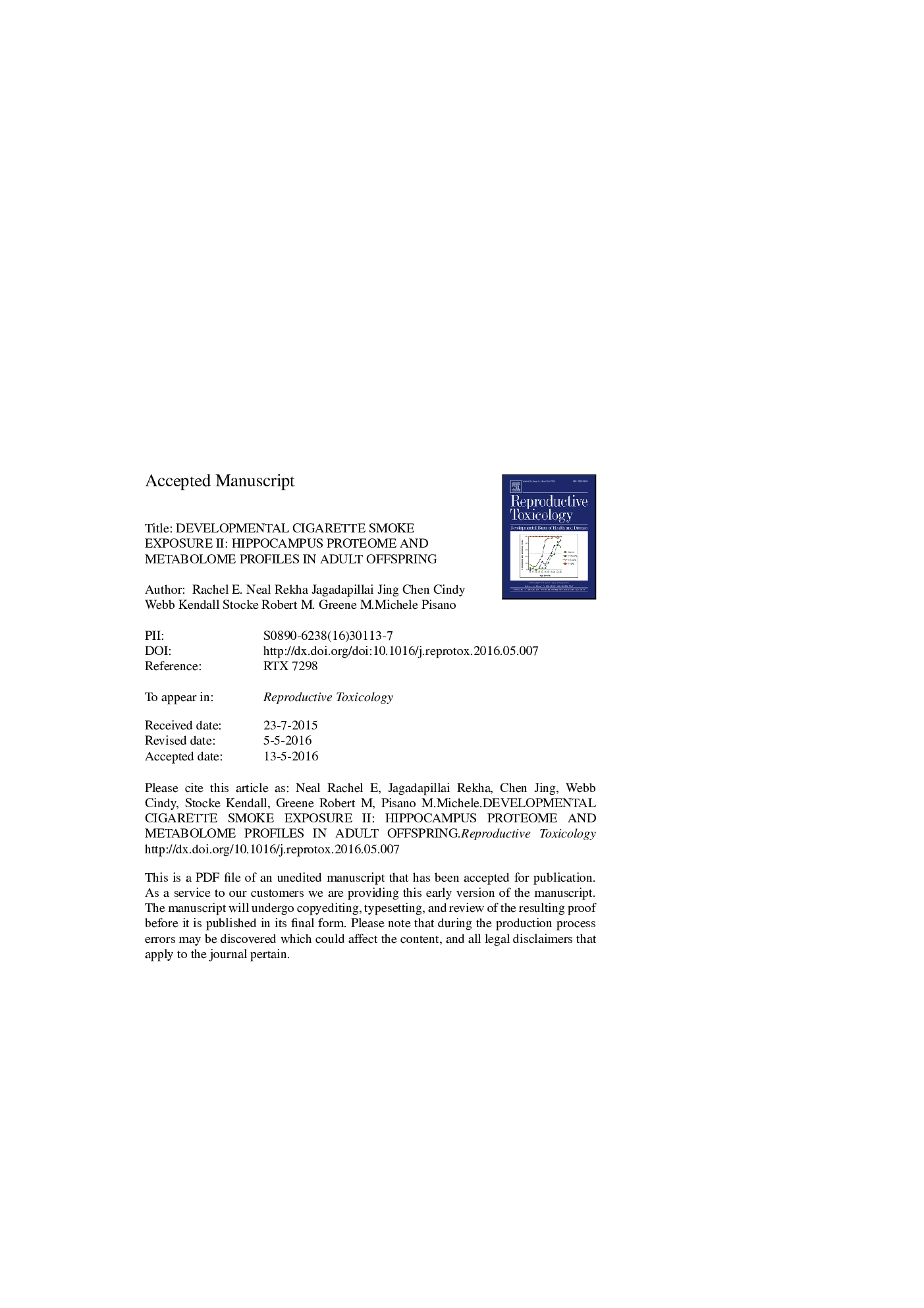| Article ID | Journal | Published Year | Pages | File Type |
|---|---|---|---|---|
| 5857956 | Reproductive Toxicology | 2016 | 38 Pages |
Abstract
Exposure to cigarette smoke during development is linked to neurodevelopmental delays and cognitive impairment including impulsivity, attention deficit disorder, and lower IQ. Utilizing a murine experimental model of “active” inhalation exposure to cigarette smoke spanning the entirety of gestation and through human third trimester equivalent hippocampal development [gestation day 1 (GD1) through postnatal day 21 (PD21)], we examined hippocampus proteome and metabolome alterations present at a time during which developmental cigarette smoke exposure (CSE)-induced behavioral and cognitive impairments are evident in adult animals from this model system. At six month of age, carbohydrate metabolism and lipid content in the hippocampus of adult offspring remained impacted by prior exposure to cigarette smoke during the critical period of hippocampal ontogenesis indicating limited glycolysis. These findings indicate developmental CSE-induced systemic glucose availability may limit both organism growth and developmental trajectory, including the capacity for learning and memory.
Related Topics
Life Sciences
Environmental Science
Health, Toxicology and Mutagenesis
Authors
Rachel E. Neal, Rekha Jagadapillai, Jing Chen, Cindy Webb, Kendall Stocke, Robert M. Greene, M.Michele Pisano,
